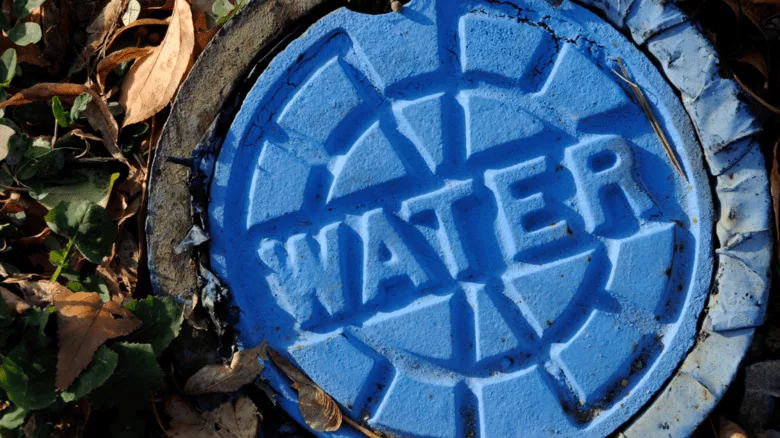GOP Senator Says Work Started on Reauthorizing IIJA Water-Infrastructure Programs
Support for water projects by rural and underserved communities among bill’s priorities

Image via James Brey from Getty Images Signature
The chair of the Senate Committee on Environment and Public Works (EPW) said she is starting work on a bill to reauthorize water-infrastructure programs in the Infrastructure Investment and Jobs Act (IIJA), a law that is scheduled to expire Sept. 30, 2026, and which many municipalities depend on to fund water-sector modernization projects.
At a hearing held April 30, 2025 to examine successful water-infrastructure programs achieved through policies and provisions in the IIJA (Public Law No. 117-58), that is also known as the Bipartisan Infrastructure Law, EPW Chair Shelley Moore Capito (R-W.Va.) said she has started working on “bipartisan legislation to reauthorize water infrastructure programs” ahead of such programs expiring in 2026 with the IIJA.
Capito outlined principles she wants to be in the reauthorization bill, including policies that enhance the ability of rural and underserved communities to deliver water projects; strengthen cooperative federalism; and deliver outcomes that prioritize safe water and reliable infrastructure.
The IIJA “represented the largest federal investment in water infrastructure in our nation’s history, delivering more than $50 billion for drinking water, wastewater, and storm-water programs,” said Capito, who added, since the IIJA’s inception, “thousands of projects have started, including projects to upgrade treatment plants, replace aging systems, and support the needs of small communities.”
In addition, Sen. Adam Schiff (D-Calif.), the top Democrat at the hearing told The Driller the “priorities” in such a reauthorization bill need to include the continuation of resources that help local utilities remove per- and polyfluoroalkyl substances (PFAS); as well as deal with lead pollution in pipes; and that provide funding to help rural and disadvantaged communities.
“I am concerned that the current administration is not funding some of the priorities in the bill that will make it possible for disadvantaged communities to access these funds,” said Schiff, who added, when it comes to funding for water infrastructure “there seems to be a lot of uncertainty among some of the water utilities, so we’ll (congressional Democrats) want to make sure that funding is a continuing priority.”
As the hearing was focused on water-infrastructure programs achieved through the IIJA, the EPW heard about such successes from three witnesses, including Kyle Dreyfuss-Wells, the CEO of Northeast Ohio Regional Sewer District who spoke on behalf of the National Association of Clean Water Agencies, and who told The Driller that funding for water-infrastructure program should remain as is despite efforts by the Trump administration to reduce federal spending.
Because utilities are operating under National Pollutant Discharge Elimination System permits, they “have five-year permits that not only allow them to manage their effluent water,” but also “how they can operate their plants to meet their permits,” Dreyfuss-Wells said.
In addition, Dreyfuss-Wells told the EPW of the positive impact the IIJA’s inclusion of supplemental grant funding through principal forgiveness had at helping local governments overcome “hesitancy to absorb additional debt, staffing capacity, and competing community priorities” at funding water-infrastructure projects.
Furthermore, the IIJA provides an unprecedented and needed investment in the U.S. drinking water infrastructure, which is helping address a considerable amount of deferred maintenance, repair, and replacement, testified Eric Oswald, the president of the Association of State Drinking Water Administrators.
Low-cost financing and principal forgiveness and grants has stimulated “long-overdue infrastructure projects” by communities that had not previously been engaged in infrastructure improvement projects, said Oswald who outlined the size of those projects based on their costs, which ranged from $43,000 to $65 million.
Such projects include basic upgrades to address long standing needs to full-scale infrastructure overhauls; lead service line inventories and replacements; improving system resiliency to extreme weather; and installation of treatment for PFAS and other emerging contaminants, Oswald said.
Tom Goulette, city administrator and utility superintendent for West Point, Neb., and who spoke on behalf of the National Rural Water Association, said the IIJA has provided the resources needed by small communities that usually have a more challenging time complying with federal regulations related to the operation of complex water and wastewater treatment systems.
Such challenges are due to the lack of technical resources and economies of scale, said Goulette, who added, however, despite small communities having “far fewer resources,” they are “regulated in the exact same manner as a large community,” and “are tasked with meeting the same regulatory standards as major metropolitan utilities.”
To help small communities meet such regulatory standards, “the State Revolving Funds are one of the most effective statutory tools Congress has created to support public water infrastructure,” but for too many small systems, the SRFs are inaccessible,” Goulette said.
Goulette provided the EPW with recommendations to help small communities at “unlocking the bipartisan infrastructure law’s intended impact,” such as simplifying application requirements; providing upfront technical assistance; reducing match requirements; expediting environmental reviews; prioritizing need over scale in scoring systems; and ensuring “disadvantaged” definitions reflect the realities of small and rural communities.
Click here to watch the video of the hearing.
Looking for a reprint of this article?
From high-res PDFs to custom plaques, order your copy today!




